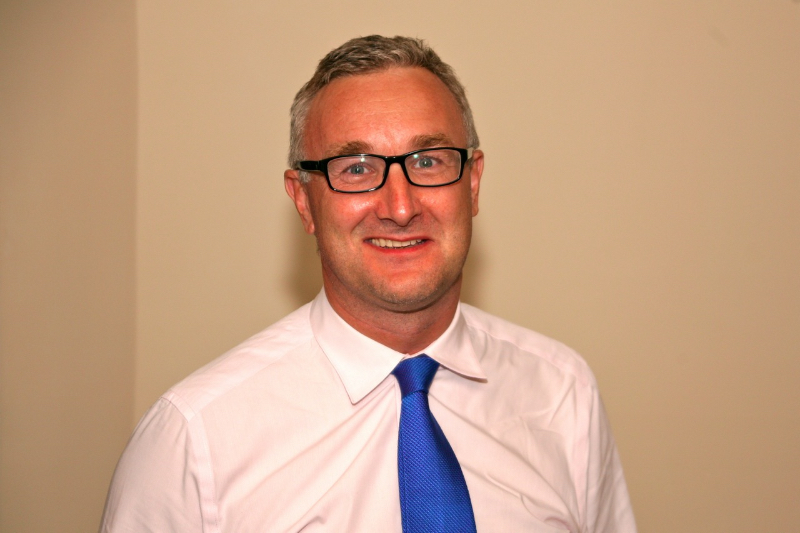
©NAZARKRU/ISTOCK/THINKSTOCK
For the first time in history every industry faces a very similar problem: the massive democratization of data, its use and the power it has provided the consumer. From healthcare to retail to banking, new players are emerging that are more agile than ever before to serve a client base that is demanding change and experience.
FEI Daily spoke with Simon Moss, managing director in the Financial Services Advisory practice at Grant Thornton, about fintech disruption, where to begin with blockchain, the Paris Agreement, hacktivism and more.
Read Part 1 here.
FEI Daily: What are some of the takeaways for financial executives from the recent Grant Thornton report, The Future of Growth and the Banking Industry?
Simon Moss: I would say three things. One, you had better open your eyes because you need to understand your customer. Not in a passé way. You need to understand that your customer has transformed over the last decade in terms of how they want you to perform.

The second thing is you have an opportunity to add multiple basis points to the bottom line and to shareholder value by looking at your middle and back offices and technology teams and completely transforming them. We have never had an opportunity like this. The market has always been driven by the front office. The technology has always been driven by the front office. With AI and robotics, the profitability of the firm is going to be driven by efficiencies in the middle and back office processing businesses. It is not pleasing to say, but financial operations will go through the same set of transformational changes that the manufacturing industry did over the last two decades – with both the efficiency and human impact we saw in that space.
And the third is, if you understand your customer and create a good plan to work out how you can understand, test and deploy these innovations in a consistent, disciplined way, there's no rush. There were many, many mistakes made with transformational technologies over the last two decades in which everyone just dove in feet first.
I remember a wonderful quote from The Economist that said, "Never did something promise so much and deliver so little than CRM (customer relationship management)." We need to be careful of a similar misstep with these new innovations. I believe they are revolutionary. There's no doubt about it. They will transform the way the financial enterprise operates. But they can be deployed and managed and executed in an evolutionary way.
FEI Daily: What cyber risks will businesses face in the future? Are the financial institutions ready for it?
Moss: We have to be concerned about hacktivism, when people enjoy themselves by hacking large complex organizations and causing a bit of trouble. Or a lot. I believe phishing, malware extortion, the use of search history and web site visit information in targeting susceptible individuals within institutions, ransomware and multiple other activities will not decrease. They will become more sophisticated, more nefarious and more common. Will individual institutions be able to protect themselves? I think they will with a combination of technology, culture, training and transparency. We are in for a bumpy ride, though.
My larger concern is system risk—the electrical grid, the banking payment systems, Swift and ACH. These are elements that, frankly, businesses are not prepared for and are not secure enough against cyberattacks because there are many weak links in the network.
We also have to break down the types of individuals we are combating. You've got the evil geniuses that enjoy doing this for fun, and you've got the true problematic individuals in the terrorist organizations, in the human trafficking rings, in the narco-economy. I think identity theft, money laundering, human trafficking and terrorist financing organizations are the principle risks to the system. The two types will use exactly the same techniques: spear phishing, ransomware, disruption of service, identity theft, encryption breaking and elements like that. So we have to solve for both types of actor at the same time.
I think financial institutions have the intellectual horsepower and the technology to be able to address these challenges. Are they agile enough to maneuver and change and deal with threats from adversaries that can change overnight? I think there is still a cultural and technical challenge that we still need to solve. Especially when everyone has a device and our entire lives have become digitized.
FEI Daily: After President Trump quit the Paris climate agreement, Elon Musk announced he’d be quitting Trump’s advisory groups. Tech companies such as Apple, Facebook and Amazon also criticized the move. What are the implications when it comes to this country’s relationship with technology?
Moss: You only have to look at the numbers. I think there's a lot of emotion around this; there are a lot of bad optics. But this planet is moving toward a green economy. The UK now generates about one percent or less of its energy through coal. It generates less carbon now than it did in the 1880s. Approximately 23 percent of it now is in renewables. Denmark can actually now power the entire country on wind generation. China is now leading in most renewable metrics. Times are changing one way or another.
The market is moving forward without the US. From a technology perspective, my only concern with pulling out of the Paris Accord is that it prevents us from being the leader in what's going to be a trillion dollar market in renewable energies. I personally believe that it is a mistake from a technology innovation perspective because we're going to lose potential investment into entrepreneurial US businesses, and we should already be miles ahead.